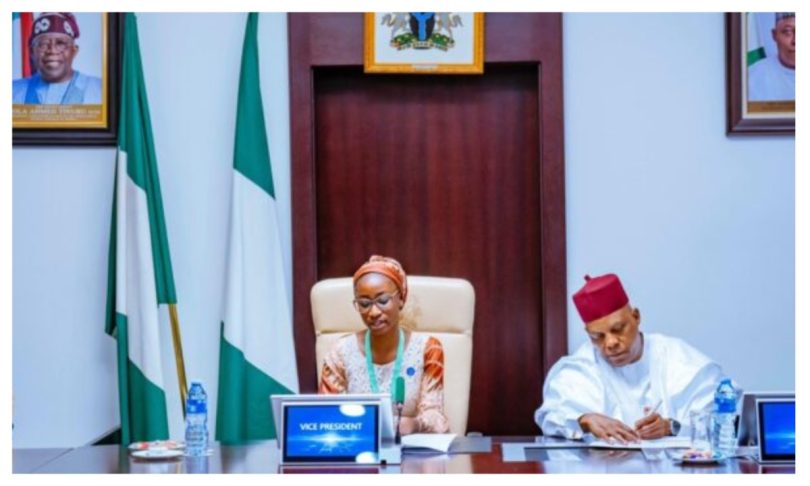Vice President Kashim Shettima on Monday stepped aside to allow teenager Joy Ogah occupy his seat and act as Nigeria’s Vice President for a day — a symbolic gesture to promote girl-child education and gender equality.
The event took place at the Presidential Villa, Abuja, during a courtesy visit by a delegation from PLAN International, led by its Director of Programme, Quality, and Innovation, Helen Idiong.
According to reports, the initiative reflects the Tinubu administration’s commitment to advancing the rights and education of the girl-child across Nigeria.
Speaking at the meeting, Shettima reaffirmed the Federal Government’s dedication to empowering girls through education and inclusivity. He highlighted the school feeding programme as one of several ongoing interventions to keep more children, especially girls, in school.
“In President Bola Tinubu, you have an ally you can believe in and invest your trust in,” Shettima said. “This government is gender-friendly. We believe in inclusivity. We cannot disenfranchise half of our population and expect to grow as a nation.”
After his remarks, the Vice President invited Ogah to take over his seat for the day — an offer she accepted with enthusiasm.
Addressing the gathering from the Vice President’s chair, Miss Ogah urged the government, policymakers, and citizens to work together to improve access to education and basic amenities for Nigerian girls. She called for free sanitary products in schools, and greater access to water, sanitation, and nutrition.
She expressed concern that about 10.5 million Nigerian children remain out of school, with over 60 percent being girls, and emphasized that girls can become leaders if given the right opportunities.
“We must invest in education that is safe and inclusive for every child in Nigeria. When girls are protected, peace becomes possible,” Ogah said. “I may be the Vice President for a day, but the struggles I represent cannot end in a day. They must continue in our policies, our classrooms, our conversations, and our budgets.”

